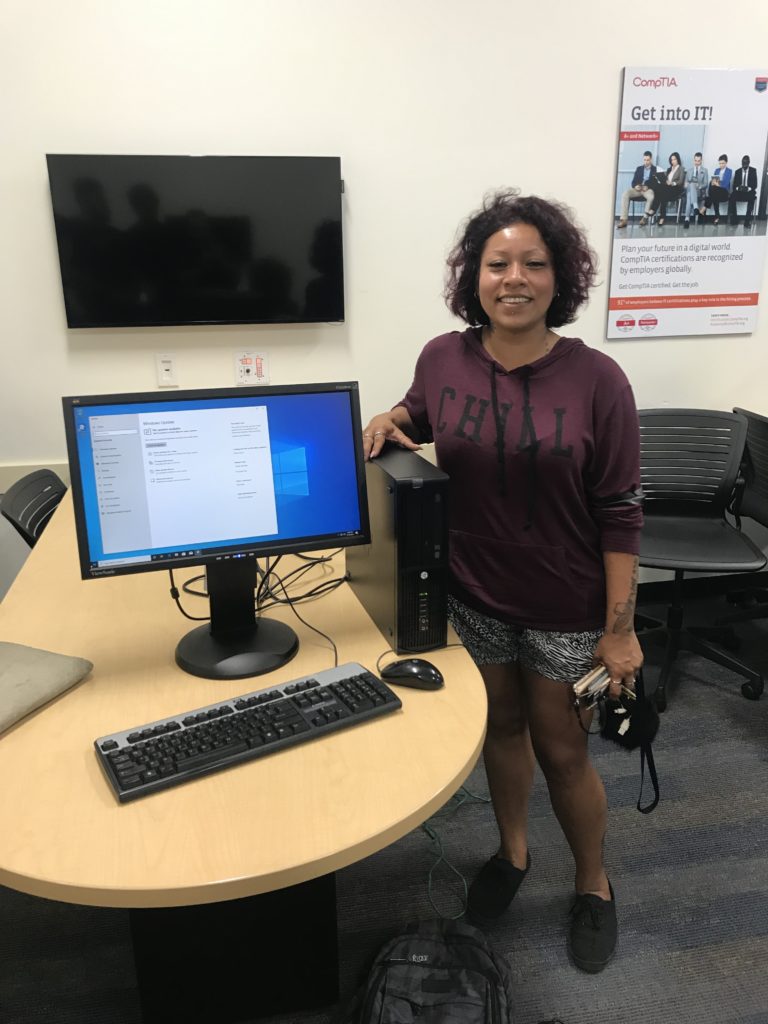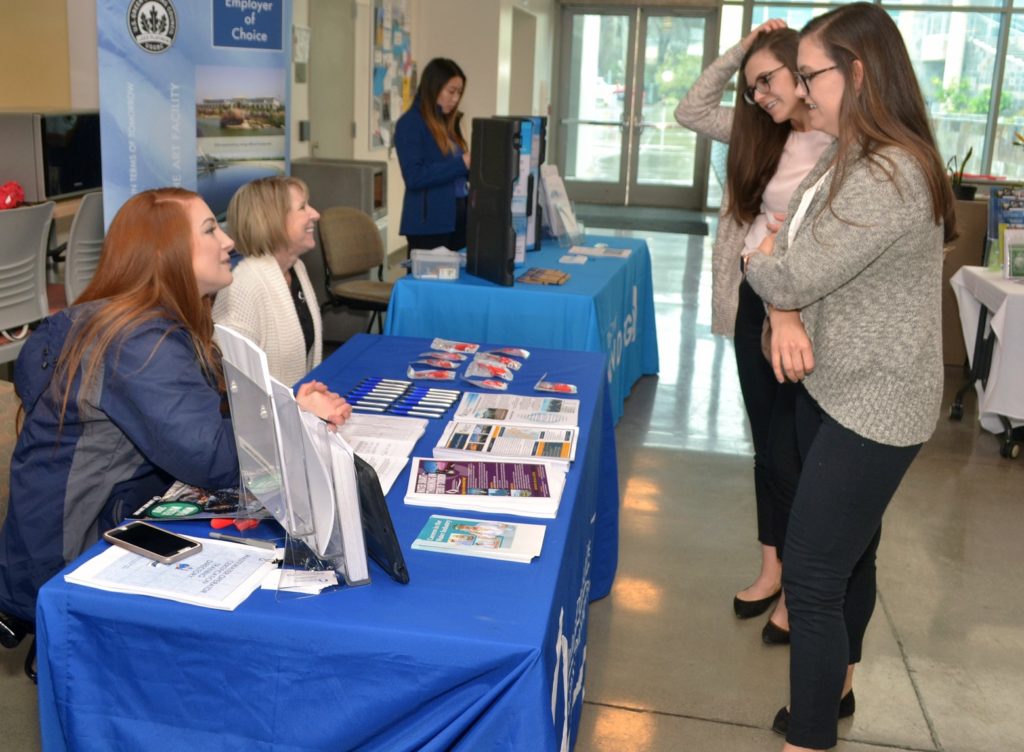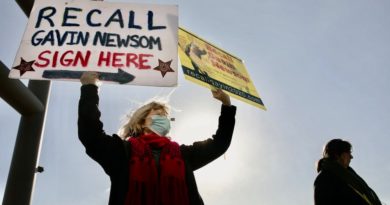Daily Business Report-Jan. 7, 2020
Applications for the 2020 LaunchPad class are being accepted until February.
Procopio law firm recruits 2020 class
for its Del Mar Heights Incubator
San Diego law firm Procopio is looking to fill its 2020 LaunchPad incubator class. No more than five inspiring ventures will be admitted to the nine-month program run out of its Del Mar Heights office in the heart of San Diego’s high-technology community.
Since 2012, a select group of carefully chosen entrepreneurs have begun the formation, protection of core technology, early funding and growth of their companies within the LaunchPad program. Incubator participants work side by side with attorneys who understand their industries and the path to success for emerging growth companies. Participants come from a range of industries, including software and Internet-based technologies, high-tech hardware, life sciences and med tech, clean tech, renewable energy, and more.
“Launching any startup is hard work. Besides the compelling idea, you need capital, dedication, laser sharp focus and the right team. Procopio’s LaunchPad provides the all-important incubation ingredient to a startup whereby great legal minds are available to help and advise in all key aspects, such as fundraising structure, patent strategy and software compliance,” said Walid Romaya, CEO of RealStir (Real Estate on Demand), a 2019 LaunchPad participant.
Entrepreneurs participating in the incubator receive credit toward corporate and intellectual property legal services of their choosing and ongoing legal support as they position their companies for outside funding. They do so while benefiting from complimentary office space and back-office business support including conference rooms and other amenities.
Applications for the 2020 LaunchPad class are being accepted until February 2020, with move-in dates to be scheduled for March 2020. Potential LaunchPad participants can learn more about the program and apply at procopio.com/launchpad.
________________________

UC San Diego Report:
Shutdown of coal-fired plants in U.S.
saves lives and improves crop yields
The decommissioning of coal-fired power plants in the continental United States has reduced nearby pollution and its negative impacts on human health and crop yields, according to a new University of California San Diego study.
The findings published this week in Nature Sustainability use the U.S. transition in recent years from coal towards natural gas for electric power generation to study the local impacts of coal-fired unit shutdowns. While the shift from coal to natural gas has reduced carbon dioxide emissions overall, it has also changed local pollution levels at hundreds of areas around the country. In particular, the burning of coal creates particulate matter and ozone in the lower atmosphere—often experienced as “smog” —which can affect humans, plants and regional climate. These pollutants (aerosols, ozone and other compounds) from coal burning can wreak havoc on human health when inhaled, and also have damaging effects on plant life. They also alter local climate by blocking incoming sunlight.
________________________

GenProp LLC purchases site of La Mesa
motel that burned down in 2015
GenProp LLC, a San Diego-based real estate investment and development firm, has purchased the site of a La Mesa motel that was destroyed by fire. The seller was Bakersfield-based hospitality company Laxmi Hotels. The price was not disclosed.
Located at 4210 Spring St., the 0.76-acre site was previously home to a 44-room motel that burned down in 2015. The seller had owned the site as vacant land prior to the transaction.
Erik Anderson and John Newton of CBRE represented the buyer in the transaction.
________________________
San Diego Employers Association sets date
for 40th annual Employment Law Update
San Diego Employers Association’s 40th annual Employment Law Update will be staged Jan. 22 at Crown Plaza San Diego-Mission Valley. The event features three of San Diego’s top attorneys, each presenting on a different area of the most current and relevant employment law topics.
The event will cover new and pending legislation affecting San Diego companies, harassment prevention training requirements for companies with five or more employees, and more. The event also features a look into the “Crystal Ball,” in which the attorneys will share key legislation and developments to keep an eye on throughout 2020.

Presenting attorneys will be Chris Olmstead with Ogletree Deakins, Corrie J. Klekowski with Paul, Plevin, Sullivan & Connaughton and Lonny Zilberman with Wilson Turner Kosmo.
Click here for more info and to register.
________________________

Refurbished desktop computers donated
to disadvantaged students at MiraCosta College
Dozens of disadvantaged MiraCosta College students are getting Hewlett Packard desktop computers refurbished and upgraded by members of the Computer Studies and Information Technology Department student club, Club IT, after being discarded by a local business that closed its doors.
“This is truly an amazing story,” said Rick Cassoni, a Computer Studies and Information Technology professor who also serves as the advisor to Club IT. “I’m really proud of our students and I’m really amazed by their passion to volunteer their time to help others.”
The 38 HP computers, monitors, and keyboards were left in a local office after a company shut its doors last spring. Rather than discard the desktops, the building’s landlord donated them to the MiraCosta College Foundation, which then forwarded them to the Computer Studies and Information Technology Department. Beginning this fall, approximately a half dozen volunteers with Club IT scrubbed the memory from the hard drives, made necessary repairs, and installed a new Windows 10 operating system in each unit.
The computers then went to Extended Opportunity Programs & Services (EOPS), a state-funded program supporting students from traditionally underserved communities, including those who are struggling financially. EOPS is connecting students with computers based on need, and five computers have found new homes so far.
“The impact on our students is huge since we have a large number of students who don’t have a computer at home, or one that is fast, and have to come to campus to access a computer,” said EOPS Faculty Director Yesenia Balcazar. “Some of these students also have children or work fulltime, making it even harder to come to campus. Students benefiting from a free computer will no longer have to stress about having to come to school during late hours or on the weekends because they will now have a computer at home.”
EOPS students aren’t the only ones benefitting from the donations. “I’ve never done anything like this before,” said Sarah Davis, a returning student majoring in cybersecurity who has been working on the restoration project. “Not only is it a great learning experiences that reinforces what’s being taught in the classroom, it is absolutely wonderful to be able to help another student. I couldn’t imagine being in college and not having a computer. I feel blessed being able to help.”
Cassoni praised those who spent hours restoring the systems. “These are students who are busy with their lives, who have jobs, who are going to school, who may have children they’re raising, and they’re not getting any grade for this or any kind of extra credit,” Cassoni said. “They’re doing this because they have a passion for others and a passion for learning.”
Balcazar and Cassoni are hoping all 38 desktops will be upgraded and distributed by the end of the spring semester.
________________________
U.S. student loan debt
has more than doubled in 10 years
Data compiled by LearnBonds.com indicates that student loans in the United States have more than doubled over the last 10 years by 119.51 percent. By the third quarter of 2019, the loan debt stood at $1.64 trillion from $771.7 billion in the same period 10 years ago.
Loan Debt Continues to Grow Yearly
Between 2004 and 2012, the student loan debt grew by 14 percent every year to $966 billion from $510 billion. On the other hand, student outstanding loans rose by 70 percent between 2008 and 2013. Based on these rates, student loans are expected to soar further in the coming years.
“To put this into perspective, if the current rate of growth is considered, the outstanding value of student loans in the U.S. might hit $2 trillion by 2024.”
On average, Americans carry more than $35,359 in student loan debt by Q3 of 2019 which translates to more than 26 percent increase in five years and a 2 percent increase compared with the first quarter of 2018.
The college debt burden has affected how Americans make decisions before choosing institutions for higher learning. Recent studies show that most families look at financial concerns rather than academic needs in selecting colleges.
________________________
Cubic completes acquisitions
of Delerrok and PIXIA
Cubic Corporation announced the completion of the acquisitions of Delerrok, a provider of a cloud-hosted, multi-agency fare collection platform for small- to mid-sized transit operators, and PIXIA, a provider of high performance, cloud-based solutions to manage and access massive amounts of imagery data.
Cubic acquired the remaining 82.5 percent of Delerrok’s outstanding equity for $36.4 million. In prior fiscal years, Cubic paid $6.5 million to purchase the initial 17.5 percent of Delerrok’s outstanding equity.
Additionally, Cubic acquired the remaining 80 percent of the outstanding equity of PIXIA for $200 million. Cubic had paid $50 million to purchase the initial 20 percent of the outstanding capital stock of PIXIA.
As announced on Nov. 20, 2019, the combined transactions are expected to contribute approximately $40 million in sales.
________________________

Third annual Women in Water Symposium
set for Jan. 16 at Cuyamaca College
The third annual Women in Water Symposium on Jan. 16 at Cuyamaca College will provide information about job and advancement opportunities in the water and wastewater industry. The symposium is for women interested in a career in the industry or those already a professional in the field.
The symposium will be held from 8 a.m. to 3 p.m. on Thursday, Jan. 16 at Cuyamaca College, followed by a tour of the Water Conservation Garden. Registration is free for students, and $35 for others.
“The water industry in San Diego County has more than 4,000 employees and needs men and women,” said Joe Young, coordinator of the Center for Water Studies at Cuyamaca College. “At the Women in Water Symposium, you can learn about the available jobs and find your passion in a rewarding career.”
The water and wastewater industry is a promising field of employment. Water and wastewater treatment plant operators in California earn an annual mean wage of more than $72,000, according to the U.S. Bureau of Labor Statistics. The San Diego County Water Authority has estimated that about 400 positions will need to be filled by local utilities each year to keep up with retirements and vacancies as the result of an aging workforce.
The Women in Water Symposum will have three tracks – sessions for those interested in getting started in a career in water; those transitioning in the industry and seeking career advancement; and established professionals interested in forming professional alliances and promoting workforce diversity.
The keynote speaker is Shauna Lorance, public utilities director for the city of San Diego.
For more information about the symposium and Cuyamaca College’s Center for Water Studies, go to centerforwaterstudies.org.
________________________
3 attorneys make partner
at Higgs Fletcher & Mack
Attorneys Derek Paradis, Lisa Samuth and Maggie Schroedter have been elevated to partner at San Diego law firm Higgs Fletcher & Mack.

Paradis’ practice focuses on business litigation, employment law, and hospitality and retail. He has extensive experience litigating claims brought by individuals, and class plaintiffs in both state and federal court. He also provides compliance advice and counsel on all aspects of the employer-employee relationship to clients in the hospitality industry including hotels, restaurants, bars and nightclubs. Paradis was elected to the San Diego County Hotel-Motel Association Board, which supports the local tourism industry, and he serves on the Board of Directors of the San Diego County Bar Foundation, the charitable arm of the San Diego County Bar Association.
Samuth practices in estate and tax planning, including multi-generational estate and business succession planning, probate and trust administration. Her clients range from individuals with modest to high-net worth estates, family and closely held businesses, as well as beneficiaries and fiduciaries such as individual and professional trustees. She is currently a member of the Estates & Trusts Council of Rady Children’s Hospital Foundation and is a volunteer for the San Diego County Bar Association’s Wills for Heroes program, which provides wills and other estate documents free of charge to the county’s first responders.
Schroedter has a commercial litigation and bankruptcy practice, with a special emphasis on bankruptcy appeals. She also represents individual business owners, their companies, investors, and creditors in complex business disputes involving breach of contract, fraud, intentional business torts, real estate, and preference and fraudulent transfer matters. Schroedter serves on the Board of Directors of Lawyers Club of San Diego and is a Past President and a current Board Member of the San Diego Bankruptcy Forum.
________________________
Gafcon’s Marty Glaske promoted to
senior vice president of business development

Gafcon Inc., a program, project, and construction management firm that manages and directs complex projects both nationally and internationally, has promoted Marty Glaske to senior vice president of business development.
After leading Gafcon’s labor relations division as vice president for nearly 15 years, Glaske has been tapped to direct business development strategies for Gafcon’s broader services portfolio, including program and project/construction management, technology solutions, labor relations, expert witness, outreach, and pre-construction.
Glaske brings more than 25 years of experience and strong relationships in the construction industry with both public and private clients, which will be leveraged to define strategic, forward-thinking goals for the firm. He will report directly to Gafcon’s President and Chief Operating Officer, Robin Duveen.
Glaske currently operates out of Gafcon’s San Diego headquarters located in Sorrento Valley. In his new role, he will be active throughout all of Southern California, including Gafcon’s offices in Orange County and Los Angeles.
Glaske holds both a Bachelor’s in Business and Master’s in Business Administration, emphasizing Organizational Management. In 2017, Marty was honored as the Public Works Advocate of the Year Award by the San Diego/Imperial County Chapter of the American Public Works Association.
________________________
New state laws begin for rent control,
minimum wage, and gun sales
By Dave Schwab | San Diego Community Newspaper Group
New laws signed by Gov. Gavin Newsom that took effect Jan. 1 address everything from the minimum wage to hairstyles to taxes on diapers and gun violence.
Following are some of the new laws and what they do:
••• Under AB 1482 communities without rent control will now be covered by statewide rent control protections. Rent increases will be limited to 5 percent per year plus inflation and never more than 10 percent total. The state law won’t apply to housing built within the last 15 years.
••• The hourly minimum wage increased from $12 to $13 for employees in the City of San Diego who work at least two hours per week.
••• Diapers are now tax-free.
••• California became the first state to offer Medicaid coverage for low-income adults 19 to 25 years old regardless of immigration status under SB 104.
••• Anyone prohibited from buying a firearm in another state will not be allowed to purchase a firearm in California.
••• Anyone who owns a firearm that is taken out of the home by a child or “prohibited person” can be charged with a crime and be banned from owning a gun for 10 years under SB 172.
••• AB 5 requires independent or contract workers to be considered employees and not independent workers if the employer controls the work, if the work is part of the company’s core business, or if the employer directs the worker in their job.
••• With SB 188, California becomes the first state to ban workplace and school discrimination based on a person’s natural hairstyle or texture, including braids, twists, and locks.
••• Adoption fees for military veterans will be waived under SB 245. Under the law, shelters will confirm a veteran’s eligibility using California’s current veteran driver’s license designation.
••• SB 1249 bans the sale of cosmetic products with ingredients tested on animals after Jan. 1, 2020, but does not apply to products sold globally where animal testing is required by law.
••• AB 9 allows employees up to three years to file complaints of discrimination, harassment or retaliation with the Department of Fair Employment and Housing. Previously, employees had only had one year to file a complaint.
••• SB 142 requires employers to provide clean and safe lactation rooms for breastfeeding mothers including access to a sink and refrigerator in close proximity to the employee’s workspace. It also requires the room to be free of intrusion and that employers offer mothers breaks specifically for nursing.
••• SB 1343 requires workplaces with five or more employees to provide at least two hours of sexual harassment training within six months of being hired.
— SB 83 increases paid leave from six to eight weeks for people taking care of a seriously ill family member or to bond with a new child.



